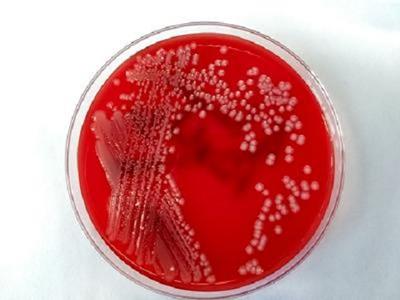New study to find cause of antimicrobial resistance in Acinetobacter baumannii

NAMRIP researchers Dr Stuart Clarke and Dr David Cleary have received funding from Malaysia to research why a particular bacteria that causes serious infections in the lungs, blood and brain is resistant to antimicrobials.
Acinetobacter baumannii is spread by direct contact with surfaces, objects or the skin of people that are contaminated. It can get into the body through open wounds, catheters and breathing tubes causing infection, particularly in someone whose immune system is already weakened. Combined with its ability to survive a range of environmental conditions and for extended periods of time, the bacteria is a common cause of infection within hospitals. Many strains have now become resistant to antibiotics. Despite the public health importance of A. baumannii, little is known about why this is.
The study is being funded with a £37,000 grant from the Fundamental Research grant Scheme in Malaysia and led by the Universiti Sultan Zainal Abidin (UniSZA).
Dr Stuart Clarke and Dr David Cleary, from the University of Southampton’s School of Medicine, will test A. baumannii samples collected from the main tertiary hospital in Terengganu, Malaysia, for antimicrobial resistance.
A sample of the isolates will also be subjected to whole genome sequencing to determine their genome architecture, epidemiology and their carriage of resistance and virulence genes.
Dr Clarke said: “The results obtained from the study will be highly significant as until now, there has not been such data in the public domain regarding A. baumannii isolates from Malaysia. We hope that our research will shed new light on a particularly nasty bacterium.”
Read about a previous collaboration between Dr Cleary, Dr Clarke and Universiti Sultan Zainal Abidin (UniSZA), a NAMRIP Pump Priming project characterising infectious diseases.